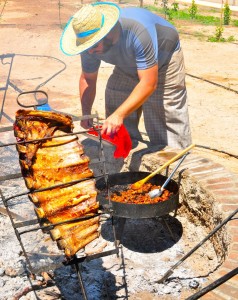Are you about to arrive in Argentina for a study abroad program? Or perhaps you are applying for a scholarship or looking into spending some time in this exotic South American country? Here’s our insider’s guide with the dos and don’ts of studying abroad in Argentina. Take a look at our tips on what to expect, but be prepared for the unexpected and get ready to fall in love with this charming Latin country.

DO embrace the food. Dulce de leche on every dessert and fruit imaginable, asados with huge portions of thick, rich meat, giant milanesas, fresh bread and croissants from mom and pop bakeries, and delicious
Malbec and Torrontes wine. You might be able to find it all when you return to your home country, but the quality and taste will never be exactly the same. Enjoy it while you can!

DO be prepared to adjust to a different education system. In some of my classes, I had 3-5 different professors and got lost in the attempt to understand each one’s expectations and peculiarities. Communication becomes complicated and sometimes instructions aren’t as clear as one might hope. Talking to them one on one is invaluable and you should take advantage of it if you have a worrying test or presentation approaching. Most professors are willing to meet outside of class during their office hours. Try to take fun classes, like dance or theatre, involving student participation or group projects because it provides a space to meet the local students and practice your Spanish.
DON’T worry if you haven’t immediately made friends. You’re the new kid and there is a language barrier. It may take a while to find the perfect group of patient and fun Argenti
DON’T arrive early. You’ve made Argentine friends! Awesome! Now you’re going to meet up with them at a bar and you’ve arrived 15 minutes early. Bad idea. While this rule doesn’t apply to every Argentine, most folks arrive 10-15 minutes late. So, if you’re 15 minutes early, you’ll be waiting 30 minutes. Don’t get frustrated with Argentines who are habitually late, accept it and revel in the concept of fashionably late as the new on-time.
DON’T fall into the trap of thinking South America is too unsafe for study abroad. There could be a higher risk of theft in Argentina than in your home country, but violent crimes are rare. Your study abroad program will give you the necessary safety tips, and if you’re really worried, choose a smaller city like Mendoza or Cordoba. You’ll learn to be more street savvy while taking precautions, a skill that will serve you far beyond your study abroad experience.
